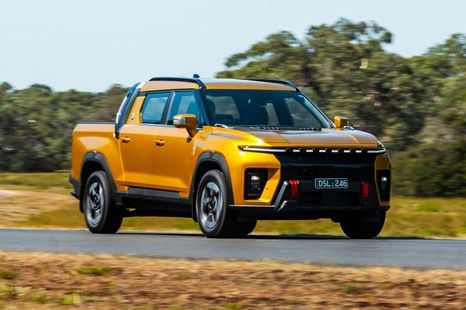

Ben Zachariah
2026 KGM Musso EV review
1 Hour Ago
The long-awaited Civic hybrid shows that hybrids can be fun. Despite some meaningful spec additions, however, it'll be too dear for some.
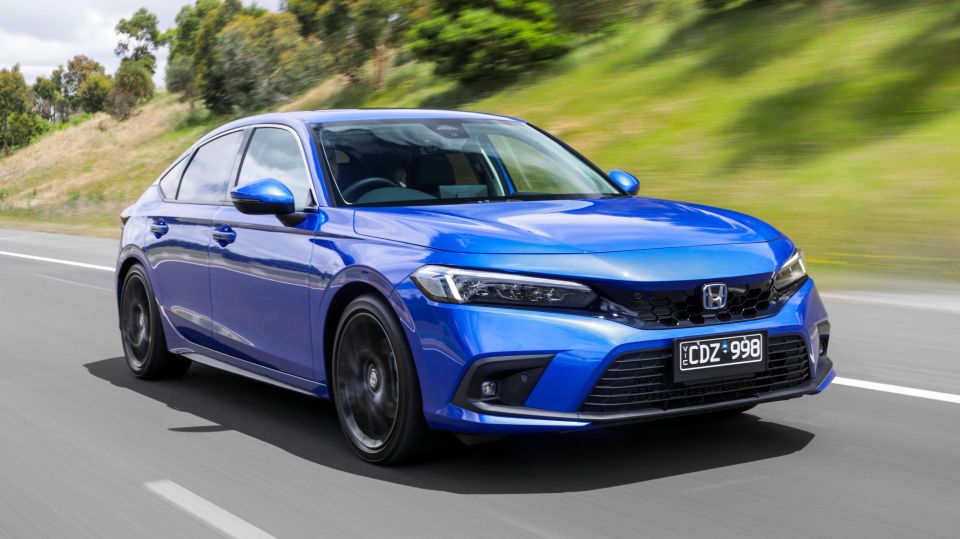
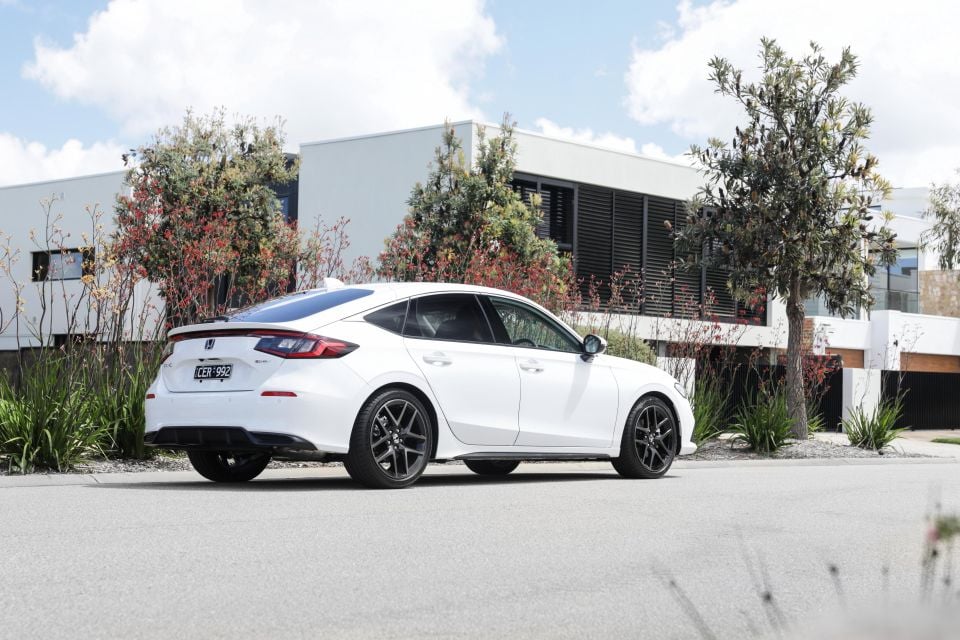

Quickly see how this car stacks up against its competition. Select any benchmark to see more details.
CarExpert brings reviews, research tools and trusted buying support together, guiding you from research to delivery with confidence.
While Toyota is synonymous with hybrids, it actually wasn’t the first company to bring petrol-electric vehicles to Australia.
That honour belongs to Honda, which debuted the Insight hybrid Down Under in 2001.
Since then Honda has offered numerous hybrid models locally based on the Civic and Accord, and more recently the HR-V crossover.
While never a market leader in electrified segments like Toyota, Honda has been a pioneer of hybrid tech globally and has offered hybrid versions of the popular Jazz, CR-V and Odyssey in overseas markets.

Enough of the history lesson. Say hello to the 2023 Honda Civic e:HEV – the brand’s latest hybrid offering, which has been warmly received by global media.
Honda appears to be pitching the Civic hybrid as a driver’s car, citing “exhilarating performance and responsive dynamics” in its marketing materials. Clearly, it wants to change the perception that hybrids are boring.
It arrives in Honda Centres this month to take on the likes of the Toyota Corolla and Camry Hybrids, with premium positioning that also lines it up against European nameplates like the Audi A3, BMW 1 Series and Mercedes-Benz A-Class.
So, can the hybrid Civic justify its premium pricing? And, has it been worth the wait?
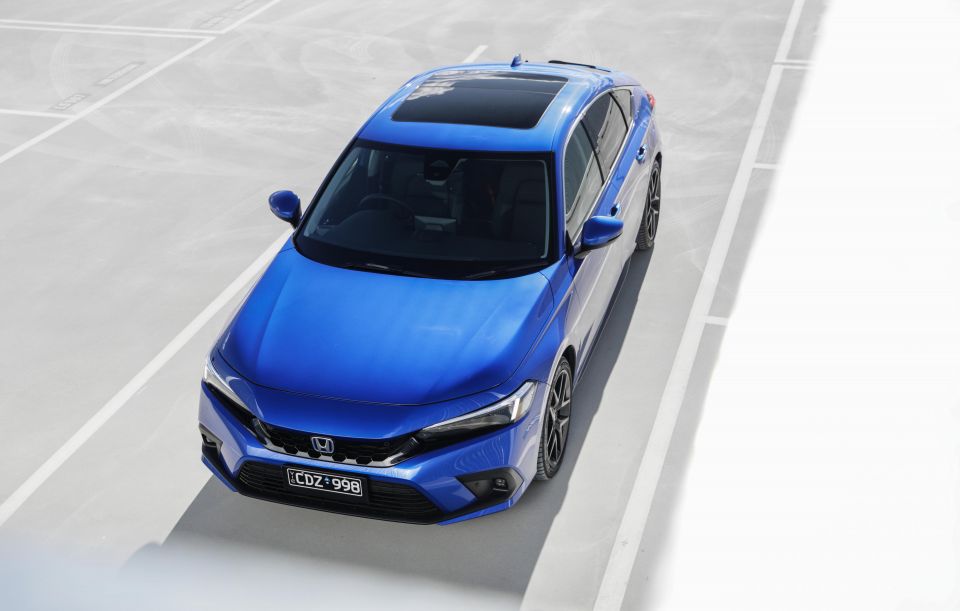
Where Toyota offers hybrids that essentially match spec with petrol equivalents for a small premium, the Honda Civic e:HEV is $7800 dearer than its LX-badged petrol sibling – advertised for $55,000 drive-away.
However, the story doesn’t end there. The Civic e:HEV LX may share its LX badging with the petrol Civic, but it also packs a more generous list of equipment which we’ll get to in a bit, and debuts Honda Connect online services in the Australian market.
Even so, at $55,000 drive-away the Civic e:HEV is more expensive than even the top-spec Toyota Camry SL Hybrid ($51,900 D/A in VIC), and isn’t far off the larger Honda Accord VTi-LX Hybrid ($61,900 D/A).
The mild-hybrid Audi A3 35 TFSI ($47,100) with some choice options will set you back similar money, while the BMW 1 Series (from $49,900) and Mercedes-Benz A-Class (from $51,400) may not offer electrification at this price point but have more badge credibility.
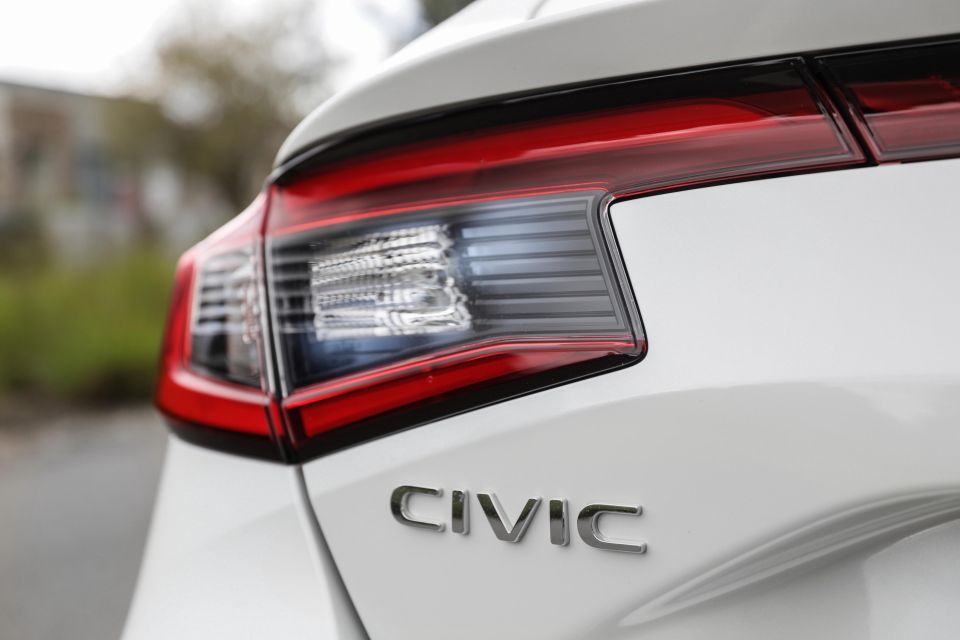
2023 Honda Civic pricing:
Prices are drive-away
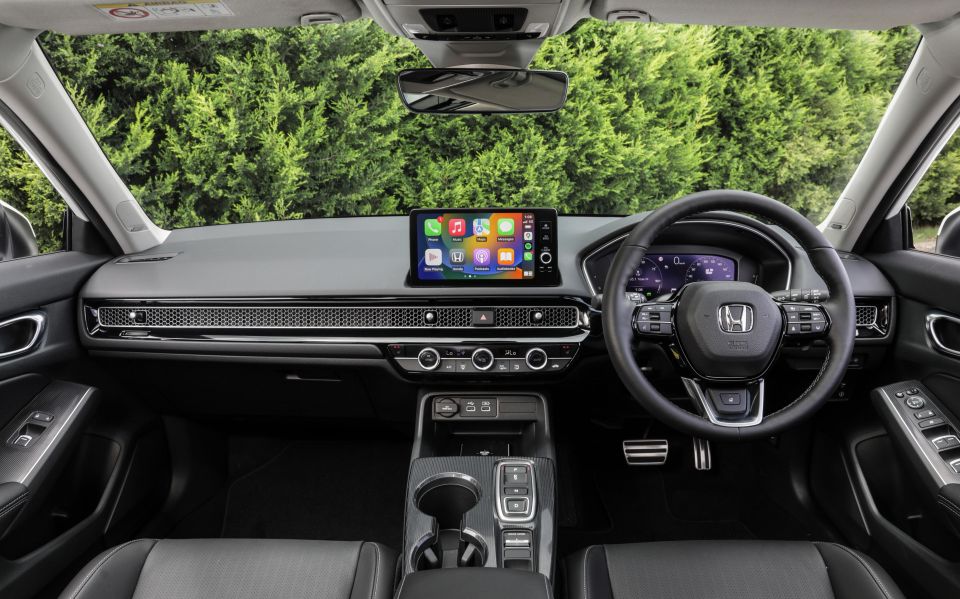
Buy your new car without the stress. It's fast, simple and completely free.

Great service from Travis and team, second time I have used this business would not hesitate to recommend them to anyone
Craig C.
Purchased a Ford Ranger in Sunshine Coast, QLD
CarExpert helped Craig save thousands on his Ford Ranger, now let us save you on your next new car.
Find a dealWhile the overall design of the Civic e:HEV’s interior is largely the same as its petrol sibling, there are a number of elements that have been upgraded for the hybrid version.
Ahead of the driver is a larger 10.2-inch digital instrument cluster compared to the petrol’s 7.0-inch partially-digital unit, and the seat trim is leather-accented here instead of the leather/suede combination of the VTi LX.
It offers two virtual dials with configurable widgets, with crisp graphics and smooth animations. Honda’s latest products have very clean designs and consistent typefaces throughout, much like Mazda – understated and classy.
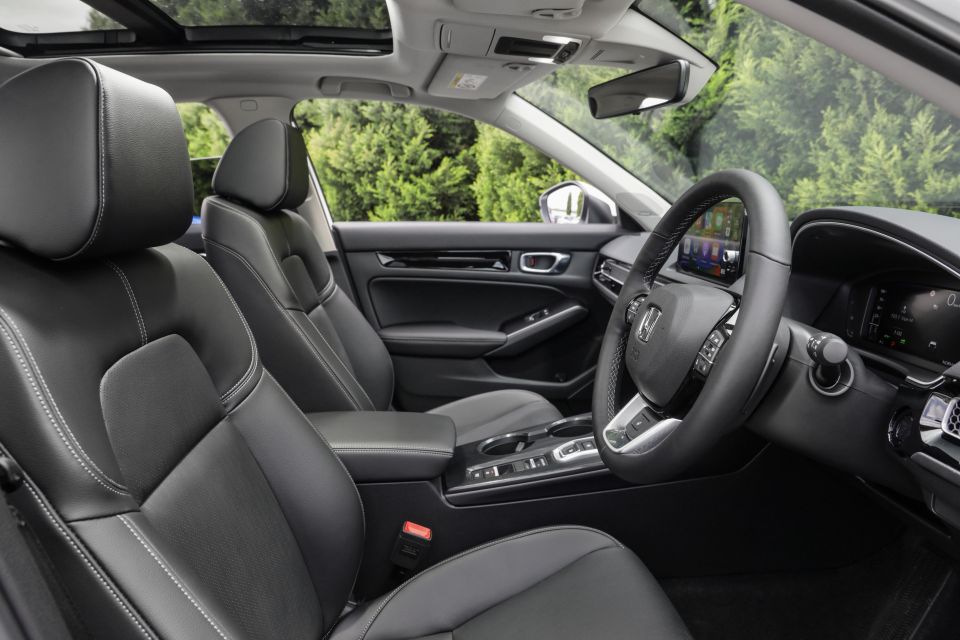
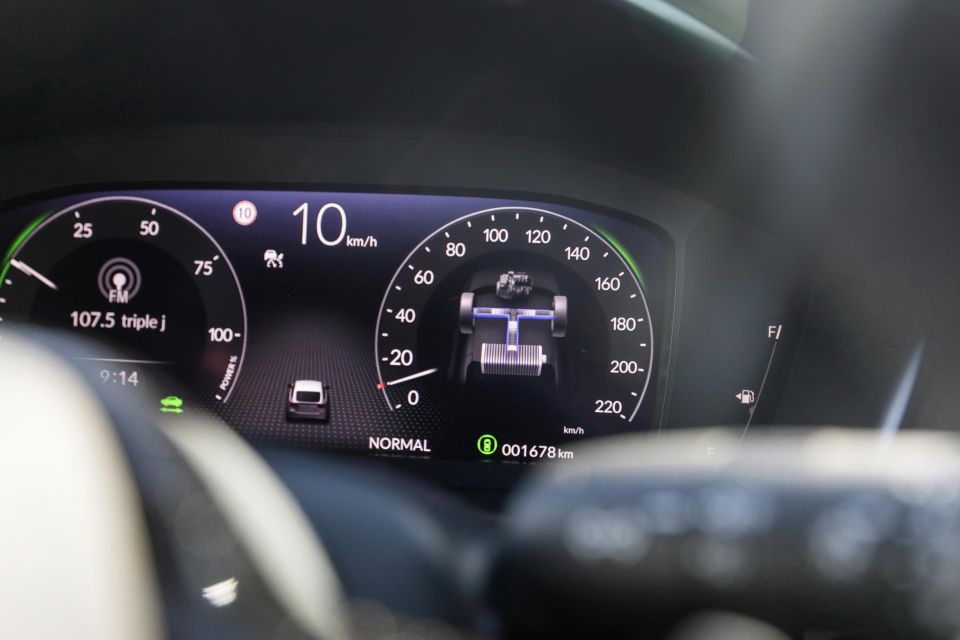
There’s a standard panoramic sunroof that lets in more light too, and new white LED ambient interior lighting to set the mood when the sun goes down.
As with the VTi LX petrol, the Civic e:HEV’s electrically adjustable front seats offer a good range of movement, and are supportive and comfortable for long or short stints behind the wheel.
The front pews are heated like those in the petrol model, but gain electric lumbar. The steering wheel also gains heating over the VTi LX, which will be handy on chilly Melbourne mornings, no doubt.
A new drive-by-wire gear selector debuts in the Civic e:HEV, which the company says is inspired by the unit used by the NSX hybrid supercar. It’s similar to the one seen in high-spec Hyundais, and becomes simple to use with practice – but a conventional selector or gearstick-shaped e-shifter would still be more preferable, at least for me.
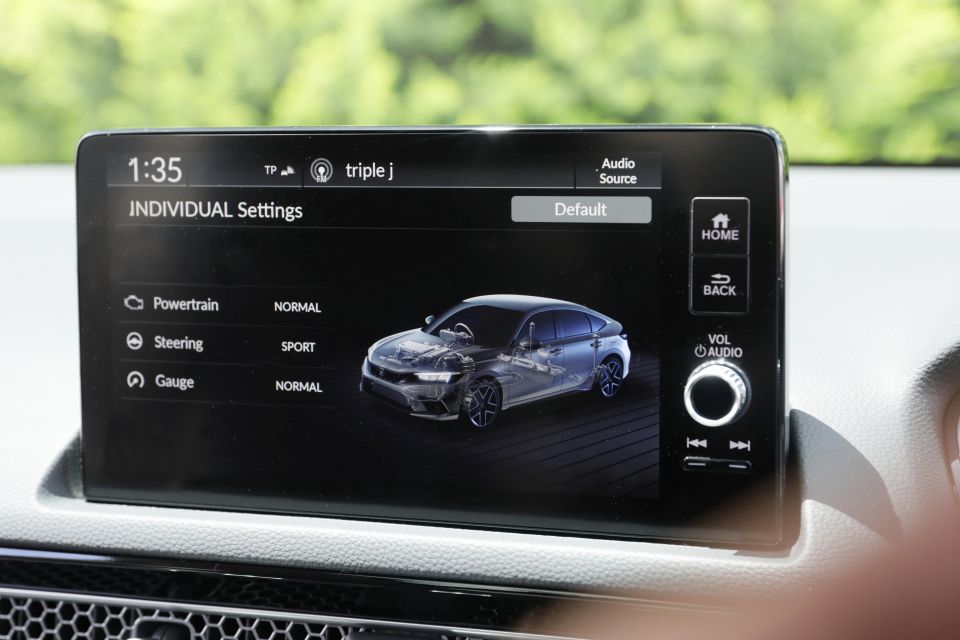
The free-standing 9.0-inch touchscreen navigation system has been upgraded with Honda Connect online services in the e:HEV, as well as the upcoming Type R halo.
Like other telematics-based infotainment platforms, Honda Connect offers a range of services that are accessible via a smartphone app, incorporating convenience and safety functions.
Highlights include:
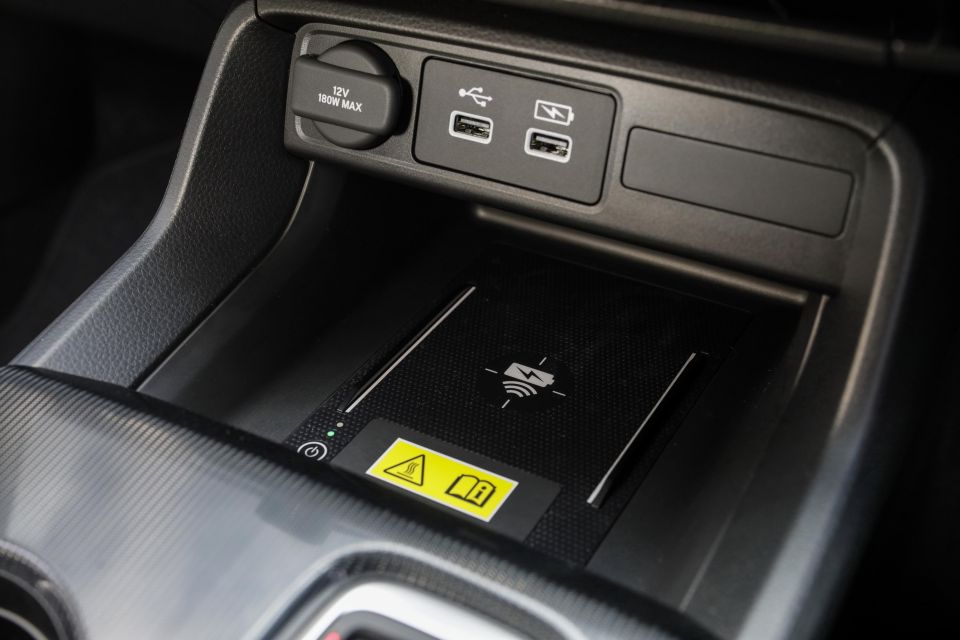
Beyond the connected functions, the touchscreen system features native satellite navigation, wireless Apple CarPlay, wired Android Auto, Bluetooth phone and audio streaming, AM/FM/DAB+ radio, and support for over-the-air (OTA) updates for both maps and system software.
Honda includes five years of free map updates, which can be done over Wi-Fi rather than requiring a visit to the service centre.
While it isn’t the largest display on offer today, it’s a massive improvement on the previous-generation Civic’s head unit. Both in terms of form and function it’s competitive with rival systems, particularly with the new connected suite.
There are two USB-A ports, a 12V outlet and a standard wireless phone charging pad. There’s also decent storage in the door bins and under the front-centre armrest.
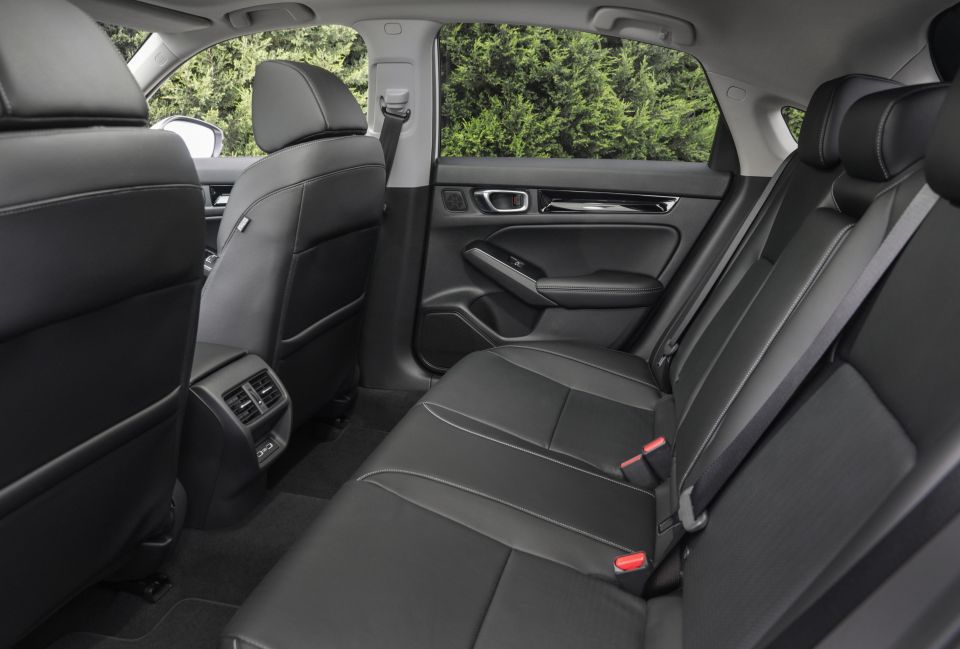
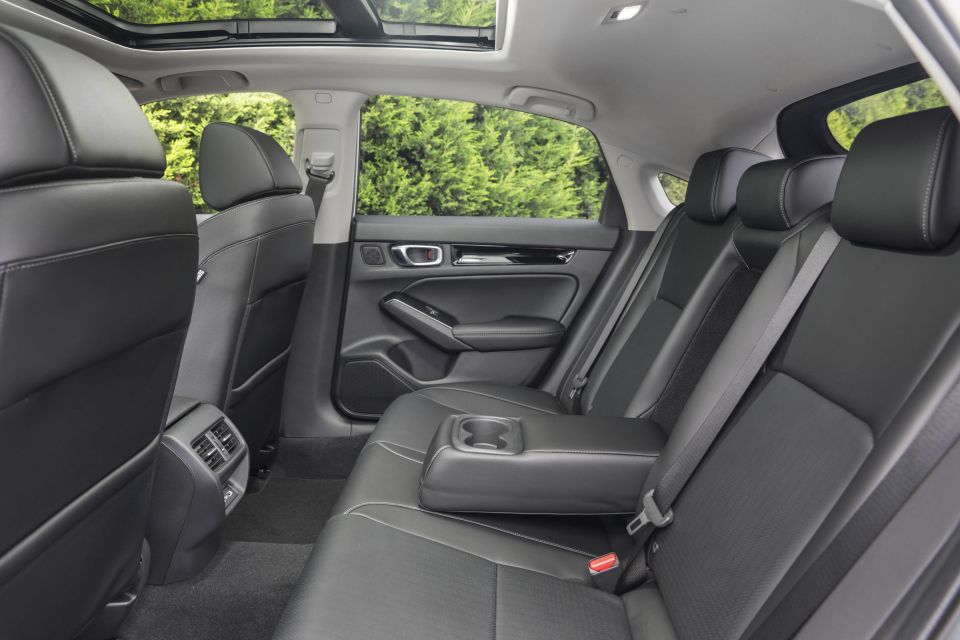
As with its predecessor, the Civic excels in terms of rear passenger space and overall practicality.
I’m 6’1 and I can sit behind my own driving position just fine, thanks to the long wheelbase and decent headroom despite the sloping fastback roofline and panoramic sunroof.
The Civic is really pushing medium-class levels of space, much like a Skoda Octavia.
Adding to the rear amenities are air vents, bottle holders in the doors, a fold-down centre armrest with cupholders, as well as an additional map pocket behind the driver’s seat over the VTi LX petrol. You’ve also got ISOFIX anchors on the outboard seats, as well as top-tether points.
Underneath the air vents behind the centre console are two additional USB-A chargers. Given the timing, it’s odd Honda hasn’t moved to USB-C connectivity yet.
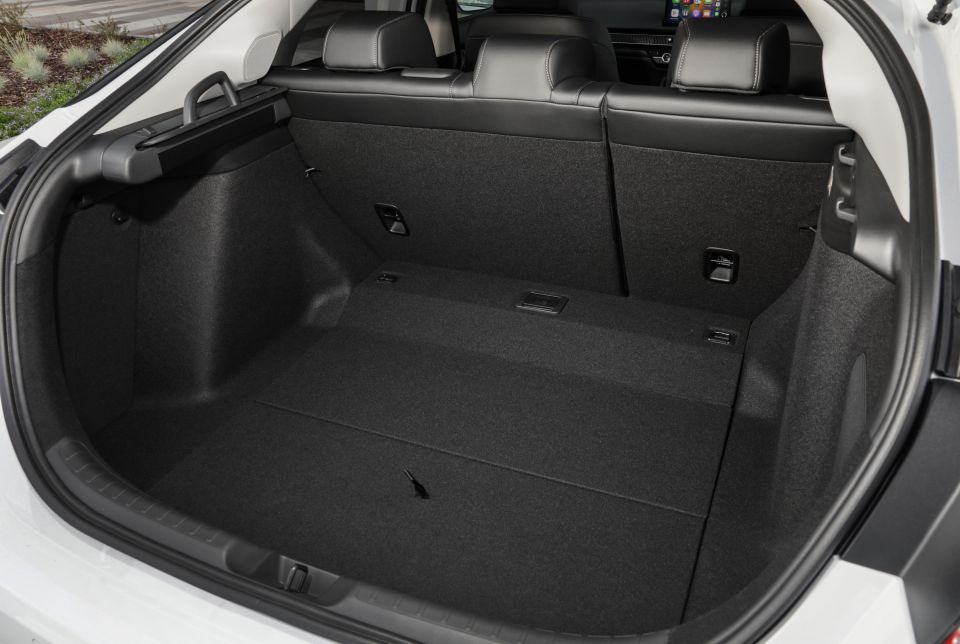
The Civic e:HEV sacrifices some luggage capacity due to the lithium battery pack being mounted under the boot floor.
According to Honda’s spec sheet, the e:HEV offers 409 litres of capacity (404L + 5L underfloor) with the rear seats in place, expanding to 1187 litres with the rear bench folded.
By comparison, the Civic VTi LX offers 449L (404L + 5L underfloor) and 1212L in the same respective configurations.
Like the petrol version, the Honda Civic doesn’t offer a spare wheel of any form, instead making do with a tyre repair kit.
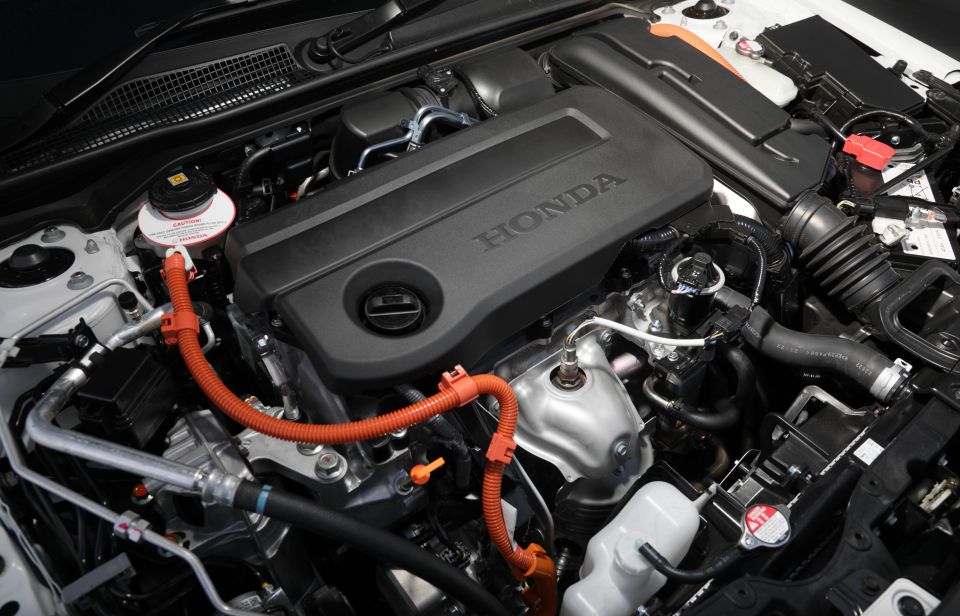
Power in the Civic e:HEV comes from a 105kW/186Nm2.0-litre Atkinson cycle petrol engine with direct injection, teamed with a 1.05kWh lithium-ion battery and two electric motors.
System outputs are quoted at 135kW (5000-6000rpm) and 315Nm (0-2000rpm), with drive sent exclusively to the front axle via an e-CVT fixed-gear transmission that’s controlled by a power control unit that optimises the drivetrain to conditions.
According to Honda, the Civic e:HEV is the most powerful non-Type R Civic, which the company claims ensures a “compelling driving experience”.
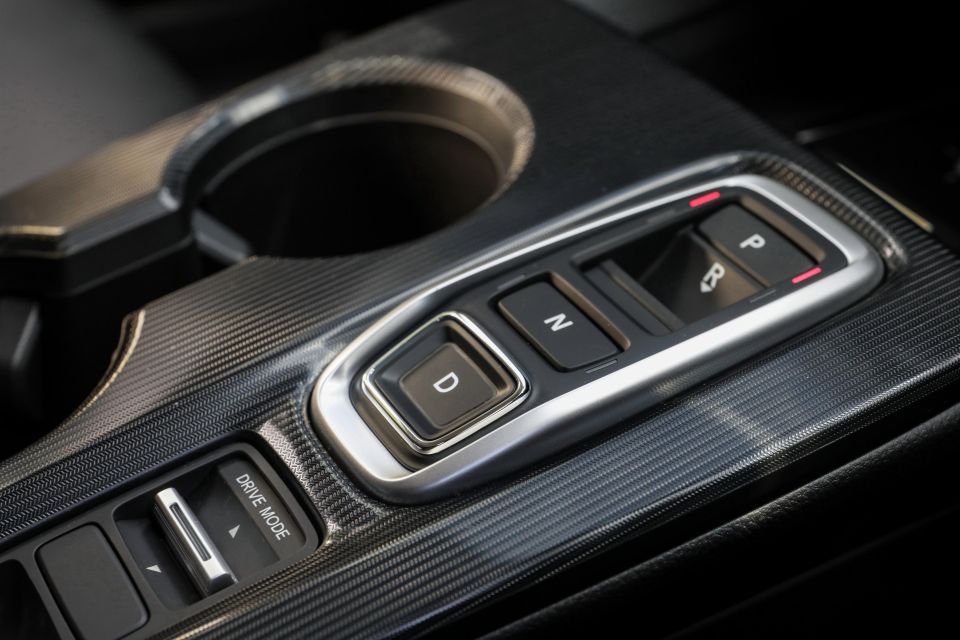
Being a hybrid, efficiency is a key aspect too.
The Civic e:HEV officially uses 4.2L per 100km on the combined cycle, although the claim is as low as 2.0L/100km on the urban cycle. That’s a 2.1L/100km improvement on the petrol, while CO2 emissions of 96g/km are a significant reduction on the petrol’s 148g per kilometre.
That’s pretty impressive when you consider the Toyota Corolla Hybrid with its less powerful 1.8-litre hybrid drivetrain achieves around 4.0L/100km on the same test.
Both VTi LX petrol and e:HEV LX hybrid versions of the new Honda Civic can run on 91 RON regular unleaded fuel, and meet Euro 6b emissions certification. Fuel tank capacity for the e:HEV is listed as 40L – down from 47L.
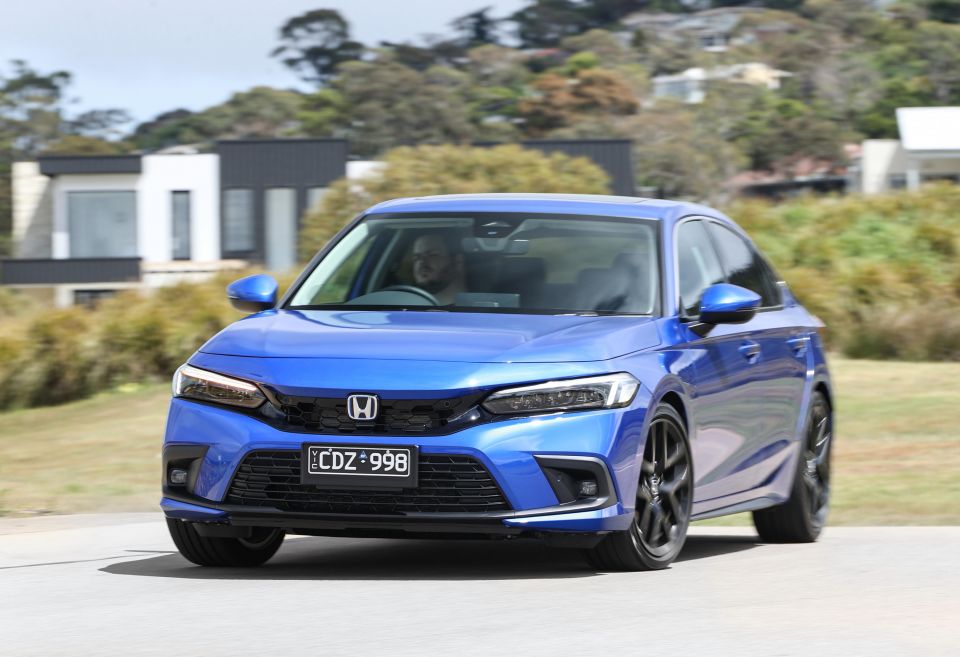
We’ve already given the 11th-gen Civic plenty of praise for the way it drives, thanks to low-slung, hunkered down chassis and keen dynamics that make it one of the driver’s picks in the small passenger segment.
Further, the latest iteration has made strides in the refinement stakes over its predecessor, which was horrendously loud and echoey on coarse-chip bitumen – this new one does no such thing.
Having the e:HEV drivetrain enhances the experience, rather than dulling it, with the system’s near-instant torque and EV driving capability (albeit over very short distances) making this arguably a more well-rounded package than the VTi LX petrol.
Honda says all 315Nm from the e:HEV drivetrain is available between 0 and 2000rpm, and it certainly feels that way. The hybrid Civic jumps off the line when you step on the throttle, and when you’re driving in a more spirited manner delivers muscular performance right through to the upper end.
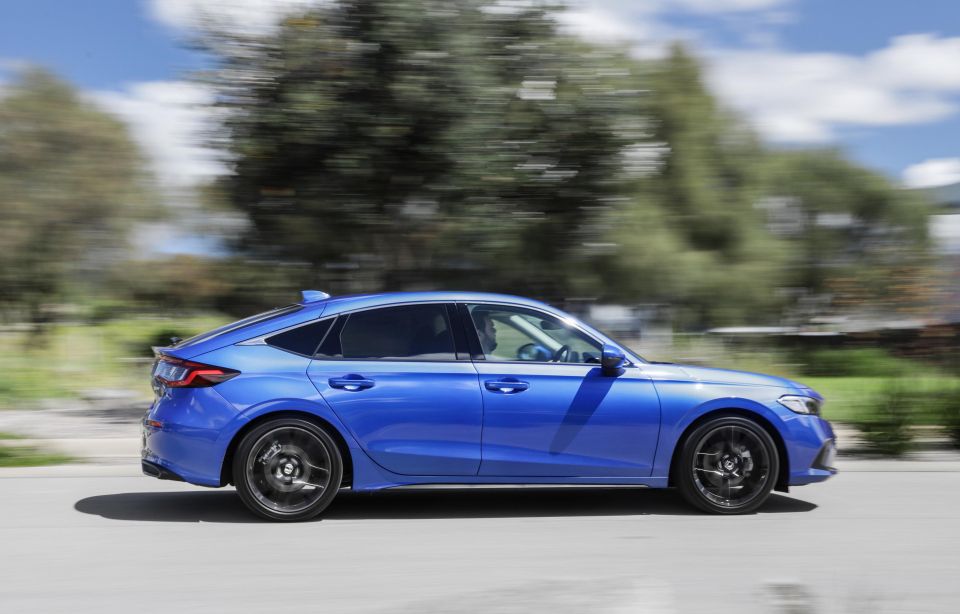
CarExpert brings reviews, research tools and trusted buying support together, guiding you from research to delivery with confidence.
In its Sport setting, the Civic will let out a sporty synthesised engine note under hard throttle, which has an almost F1-like high-pitched wine to it, and simulates gear shifts with the e-CVT. You have to experience it to believe it, but it’s actually quite a bit of fun to drive harder, unlike most hybrids which just sound like they’re complaining.
Honda Australia quotes a roundabout 0-100 claim of 7.8 seconds, but it certainly feels faster than that by the seat of the pants. Do some searching on the YouTube and you might find some videos by international media getting well under 7.0 seconds for the sprint, which is impressive for such an efficient vehicle.
It doesn’t fall apart in the bends either. The Civic e:HEV weighs less than 130kg more than the petrol, equivalent to one or two adults, meaning its dynamics aren’t hampered compared to its petrol equivalent like some other electrified vehicles.
The keen front end and hunkered-down chassis means the Civic e:HEV corners with verve and confidence, with more grip than most owners will ever dare to explore. It’s actually quite a bit of fun to punt up a winding B-road, as we found out during our launch drive.
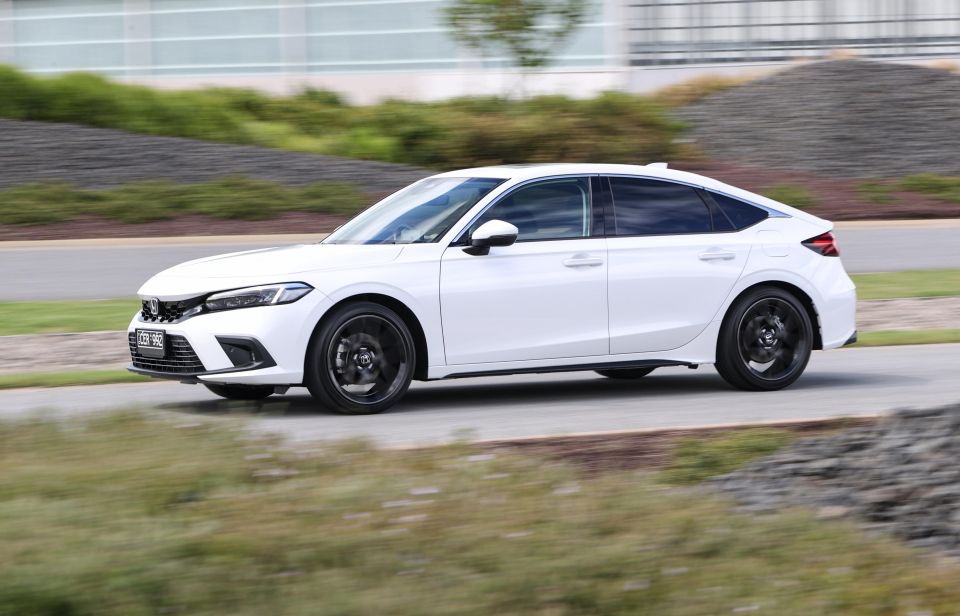
Once you hit the ‘burbs or the big smoke, the Civic e:HEV settles into a more relaxed and efficient vibe, leaning more heavily on its electric drive systems and maintaining an admirable level of comfort and composure despite its dynamic skew and big-ish 18-inch alloys shod in 235/40 Goodyear Eagle rubber.
The first portion of our drive route was navigating out of North Melbourne towards the far east, and over inner city Melbourne roads the Civic e:HEV is a comfortable and quiet commuting companion, and the responsive hybrid drivetrain makes for effortless progress.
Having a more energy dense lithium-ion battery pack (compared to the nickel-metal hydride units in older Toyota models) and beefier electric motor mean the Civic e:HEV can lean on e-power longer, allowing you to accelerate up to 50-60km/h with no petrol assistance under light throttle.
That no doubt helps to achieve the thrifty urban consumption claim of 2.0L/100km, though we’d need a week of daily commuting to ascertain whether Honda’s claims are accurate.
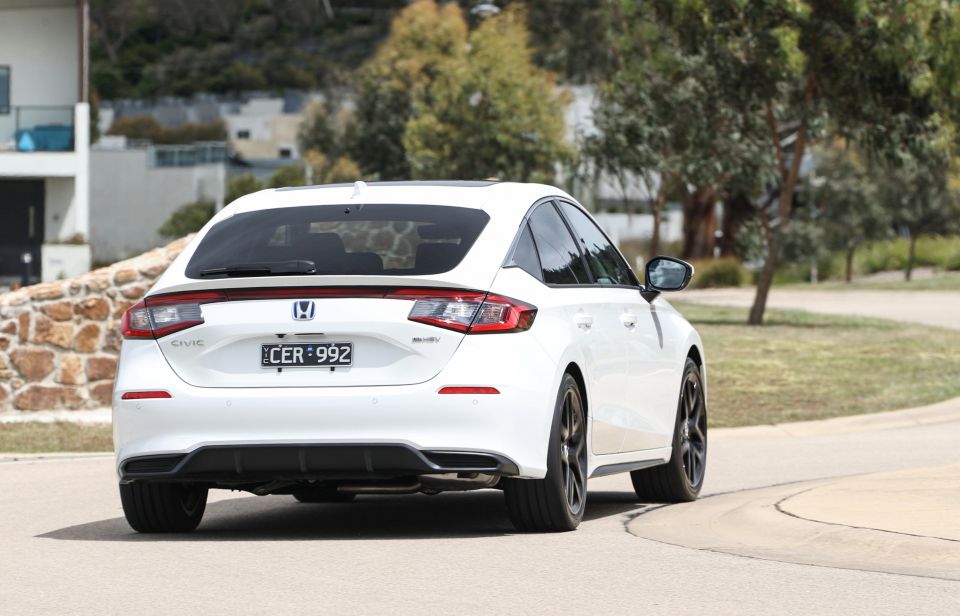
Another area where the new Civic has improved is in the driver assistance realm.
The latest Honda Sensing features are more refined and work better in the real world than previous iterations, with the adaptive cruise control and traffic jam assist functions facilitating semi autonomous driving in conjunction with the lane centring assist – and it does it well.
Front and rear parking sensors, along with a reversing camera, make parking that little bit easier, but given the pricing we would have liked to have seen a 360-degree camera system thrown in too.
Rounding out the driver assist suite are blind-spot monitoring and rear cross-traffic alert, and not the silly LaneWatch kind Honda used to use. It feels much more polished across the board, which can only be a plus.
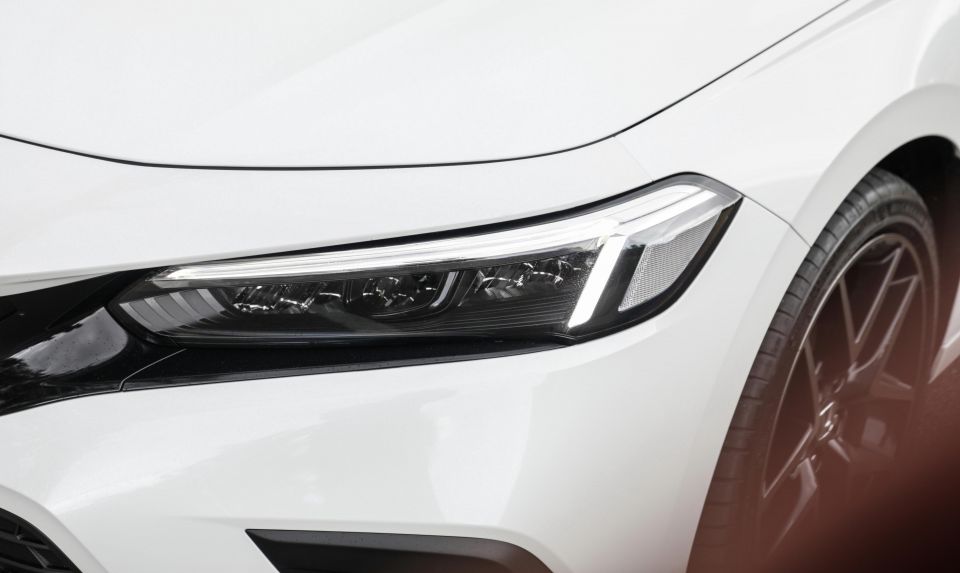
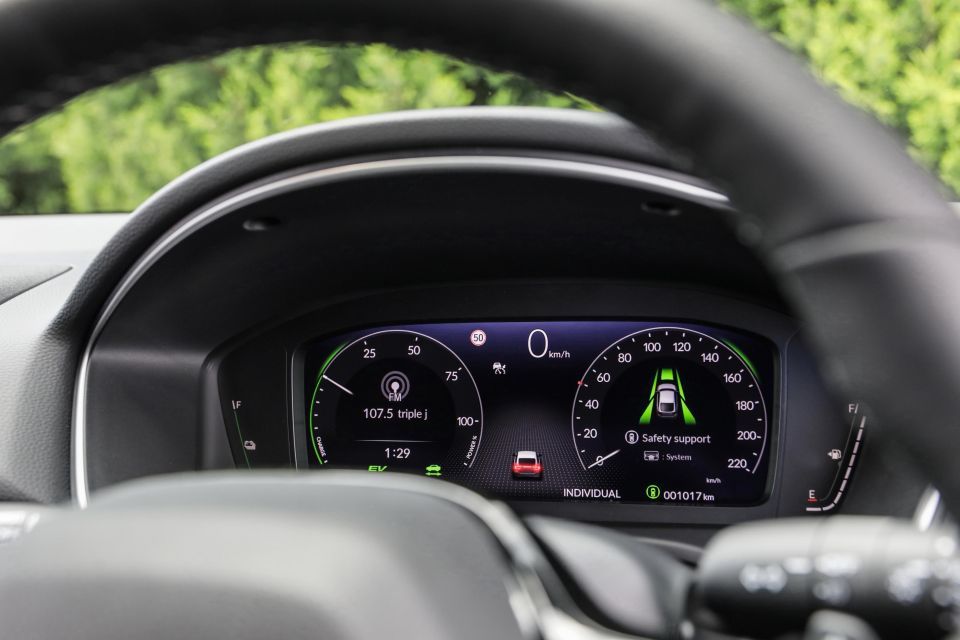
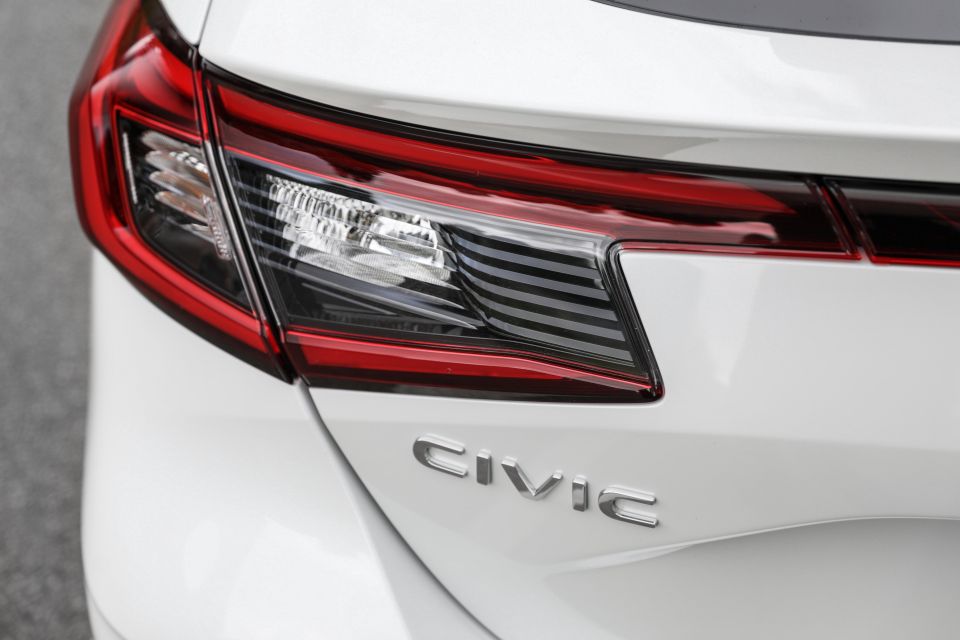
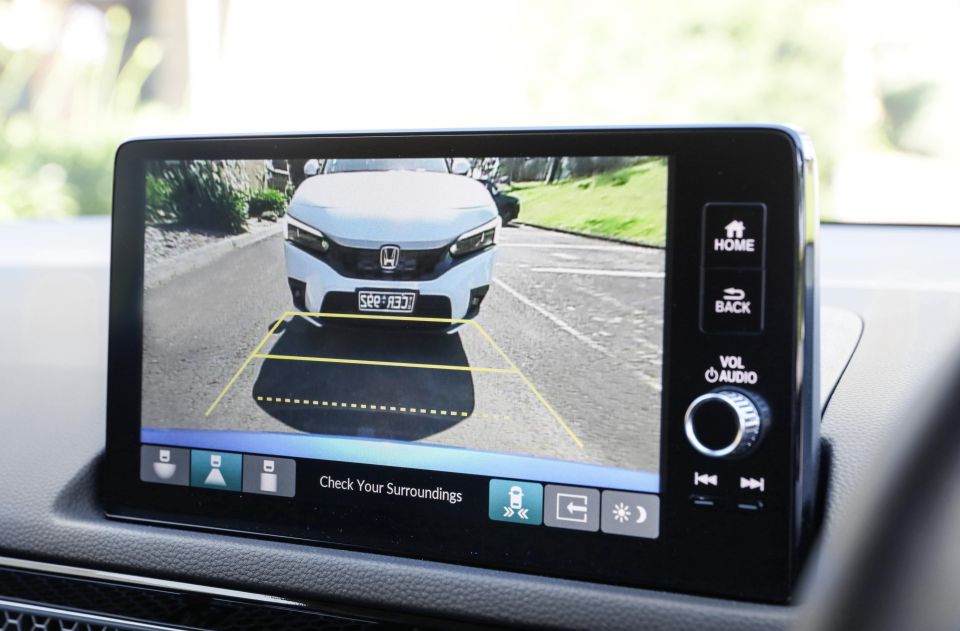
Civic e:HEV LX highlights:
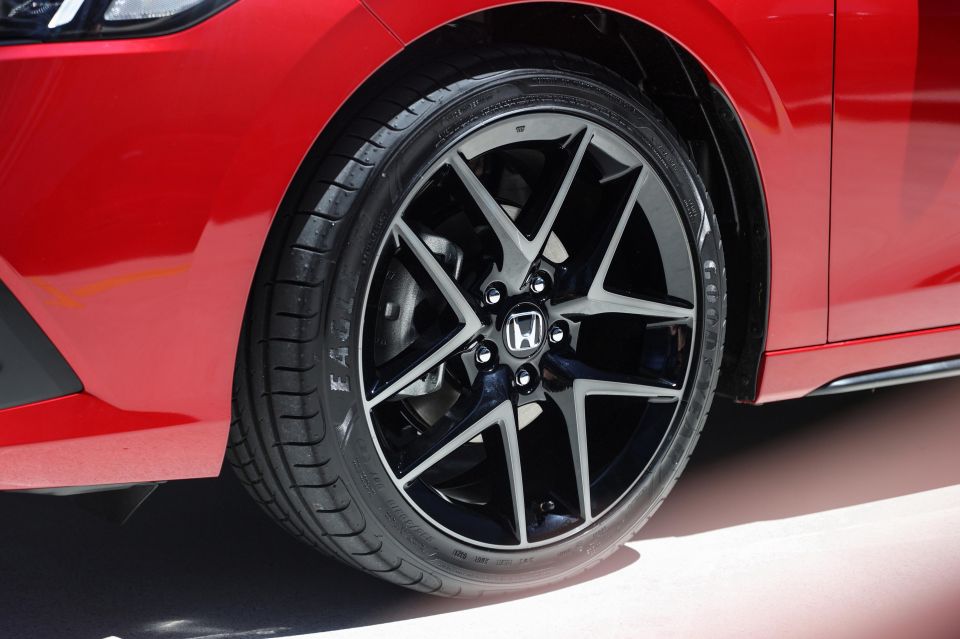
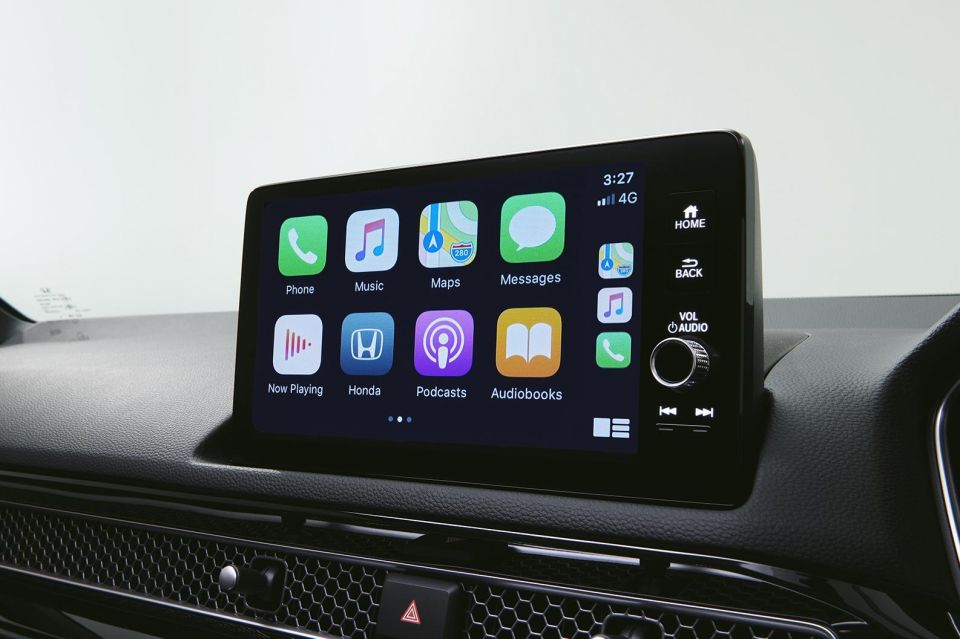
That’s on top of the Civic VTi LX’s standard specification:
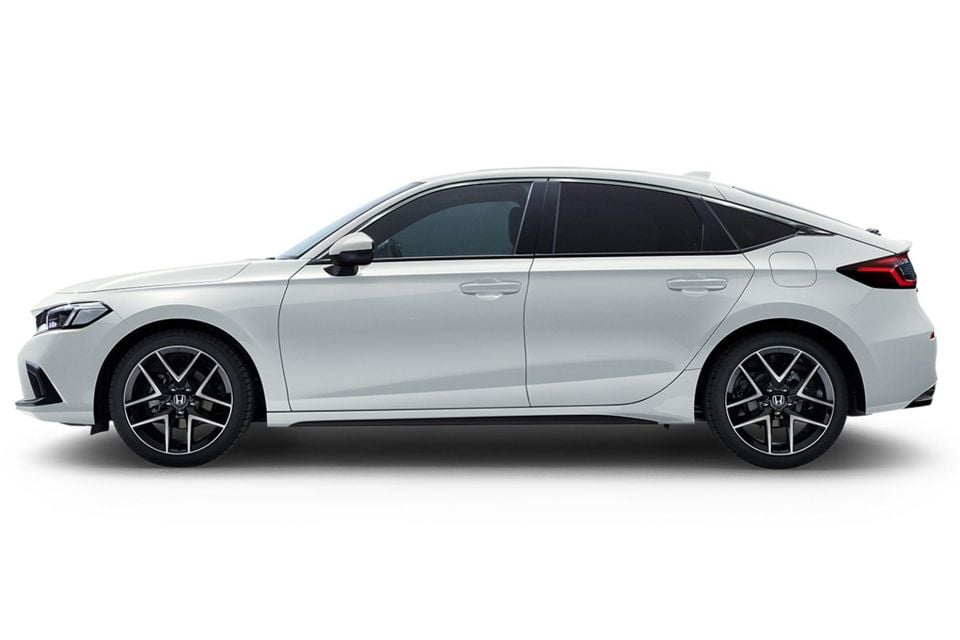
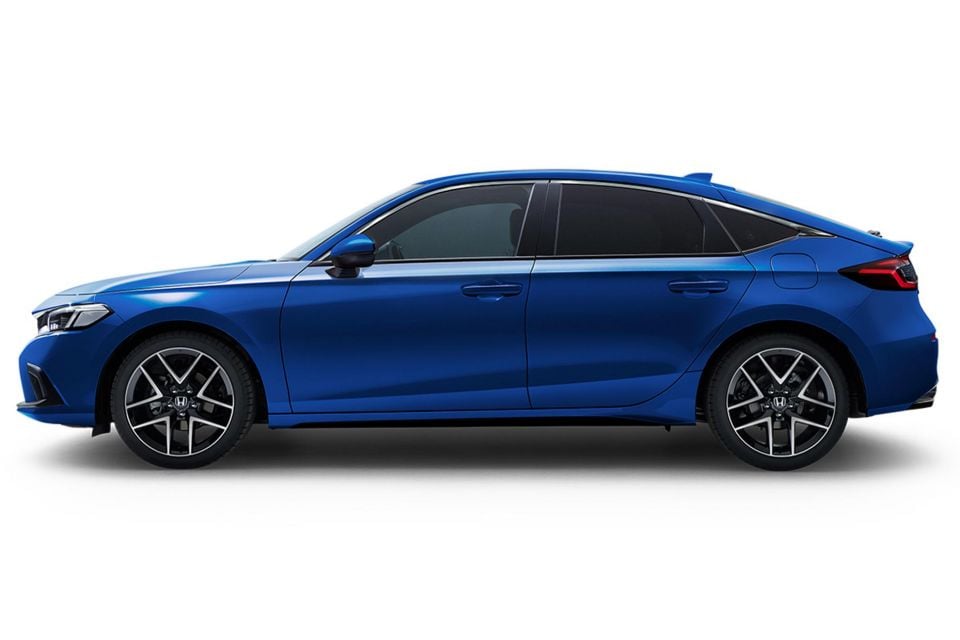
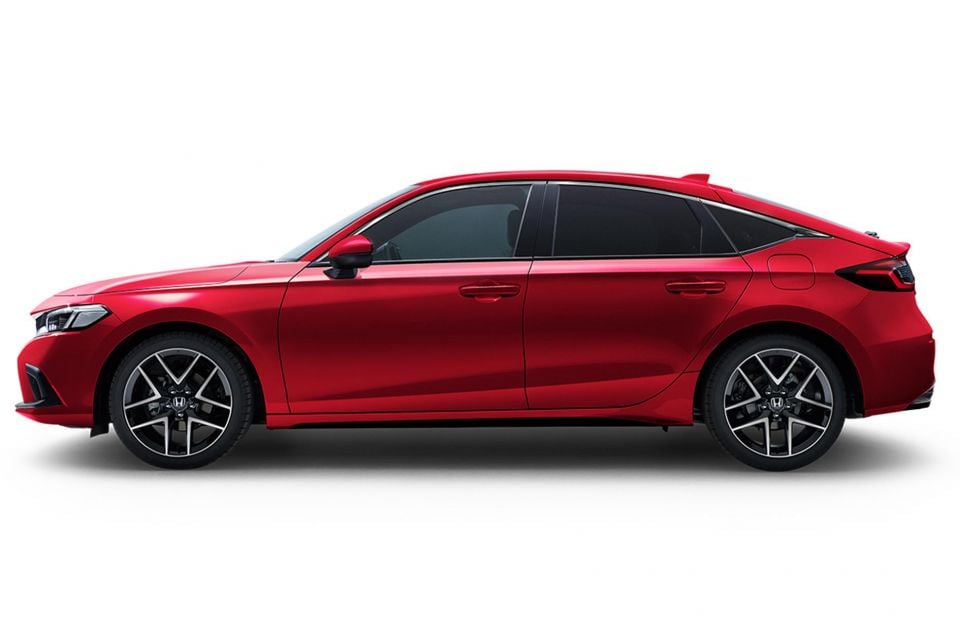
All finishes are no-cost options ($NCO)

The Honda Civic family is yet to be rated by ANCAP, though its Euro NCAP equivalent awarded the Japanese small car a five-star safety rating – in Europe, only e:HEV hybrid versions are available.
Against 2022 protocols, the Civic e:HEV scored 89 per cent for adult occupant protection, 87 per cent for child occupant protection, 82 per cent for vulnerable road users and 83 per cent for safety assist.
Standard safety equipment includes:

Civic e:HEV LX adds:
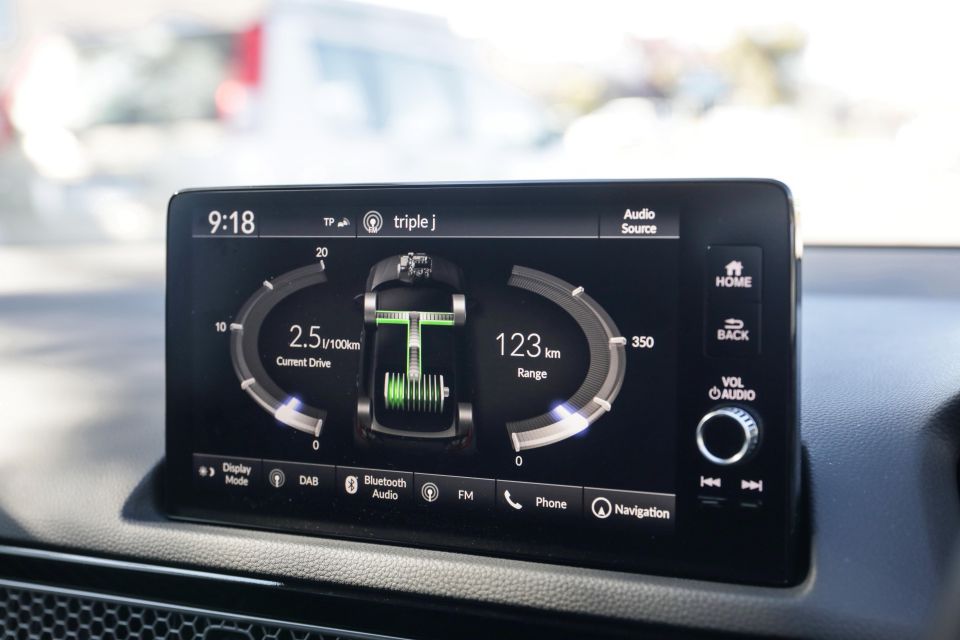
The Honda line-up is covered by a five-year, unlimited-kilometre warranty with an eight-year IMA battery module warranty for the hybrid. Additionally, there’s five years of premium 24/7 roadside assist.
On top of the warranty and roadside assist coverage, Honda guarantees five years of complimentary satellite navigation mapping updates when you service within the network. Models with Honda Connect receive a five year complementary subscription to the brand’s online services too.
Scheduled maintenance is required every 12 months or 10,000 kilometres – whichever comes first. Vehicles sold after October 1, 2022 are also subject to higher service costs than before, listed at $199 for the first five visits as opposed to the dirt-cheap $125 from before then.
That basically puts the Civic e:HEV in line with a Toyota Corolla Hybrid for running costs, though the Toyota has longer 15,000km intervals.
As for fuel consumption, our drive route wasn’t really indicative of real-world conditions given the prevalence more spirited B-roads on our test loop, but we did see the trip computer float between high fours and low sixes depending on the conditions, which is pretty decent in our books.
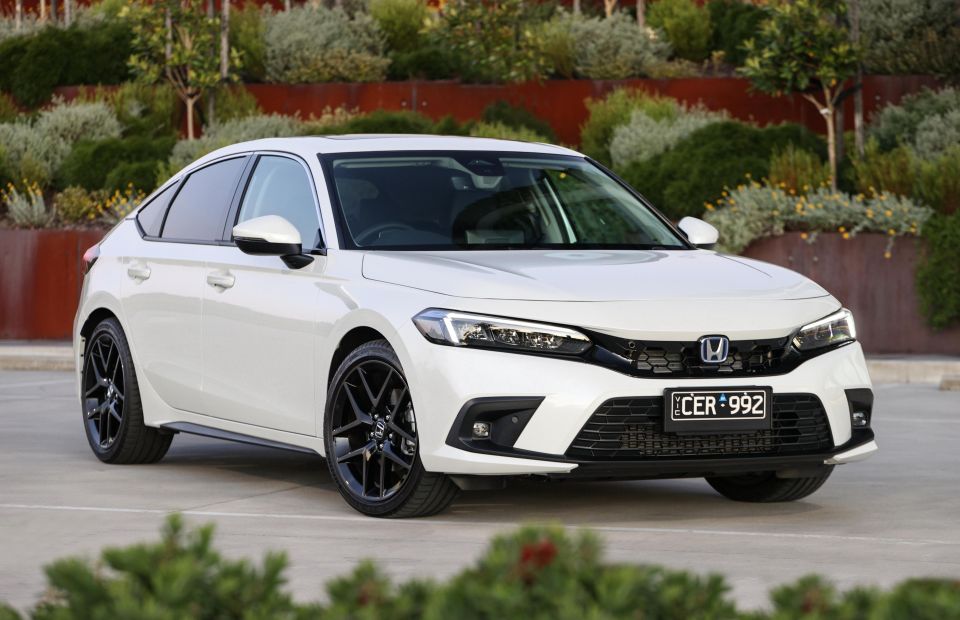
The Civic e:HEV has been very well-received overseas, and it’s easy to see why.
It’s a great size, makes hybrid actually fun, and marks a real return to form for the Japanese brand that for a while was a shadow of its former self.
While the $55,000 drive-away pricing is getting up there, there are meaningful feature and spec upgrades over the VTi LX petrol that go some way to justifying the $7800 premium, and the drive experience is excellent in our books.
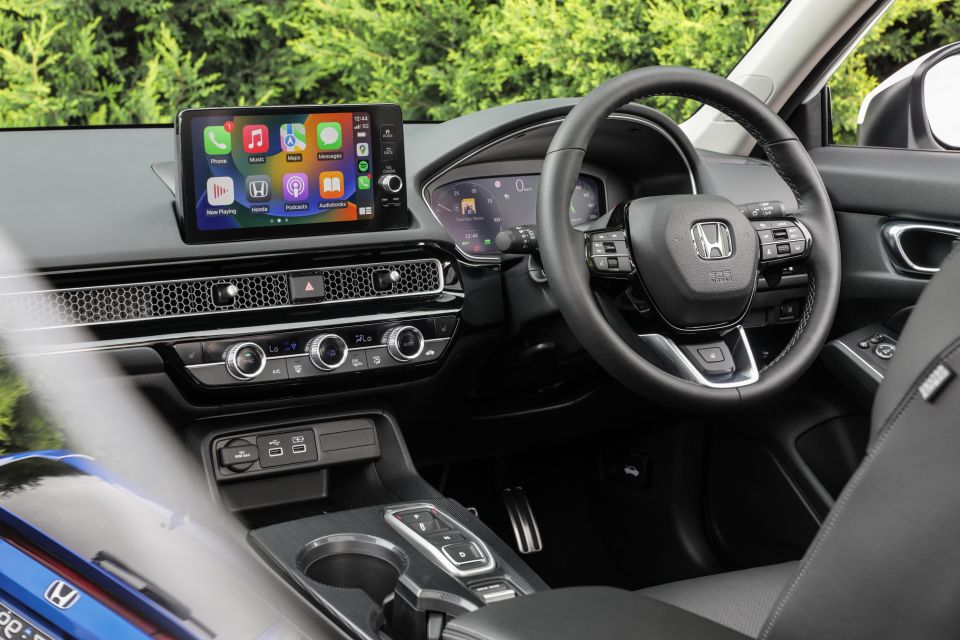
Some won’t, however, be able to let the Civic’s strengths outweigh its premium positioning, especially when something like the Audi A3 35 TFSI can be had for similar money with some choice options thrown in.
From what we’ve seen with the Accord and HR-V hybrids also, Honda could quickly run into supply issues if allocation from the Japanese factory doesn’t meet demand – a friend of mine ordered a HR-V e:HEV in July and won’t be getting her car until April, and it only launched in May.
If you want something a little different it’s definitely worth a look, but its premium local pricing means it’s not quite the no-brainer it otherwise might be.
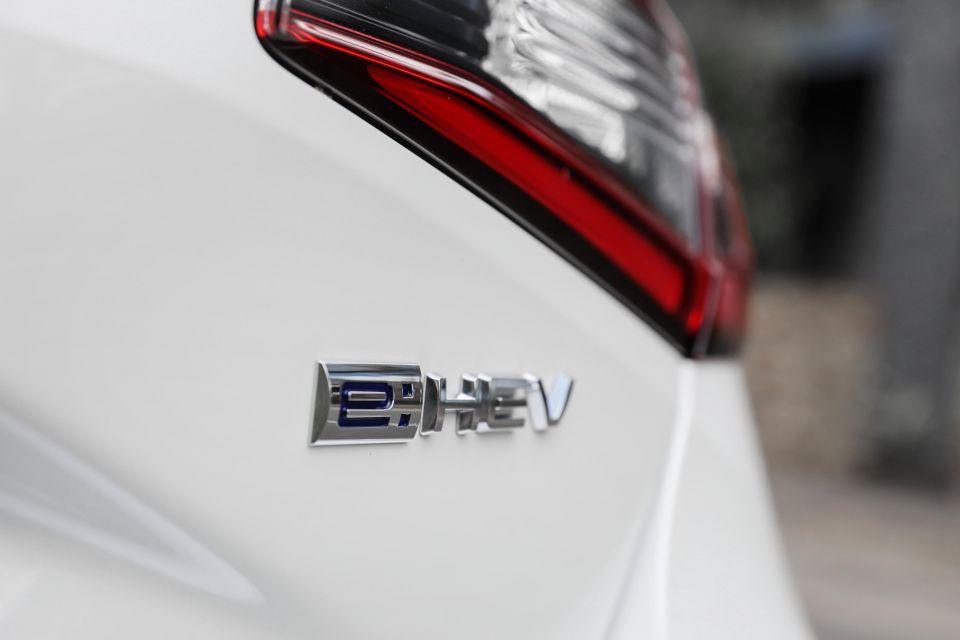
Click the images for the full gallery
MORE: Everything Honda Civic
CarExpert brings reviews, research tools and trusted buying support together, guiding you from research to delivery with confidence.
Honda Civic
Honda Civic Sales rolling 12-months#
*Based on VFACTS and EVC data
Looking for complete Honda Civic price history?
Our Honda Civic Pricing Page shows exactly how prices have changed over time.
2023
$44,986
2025
$47,400
2025
$52,935
2025
$75,121
James Wong is an automotive journalist and former PR consultant, recognised among Australia’s most prolific motoring writers.
Add CarExpert as a Preferred Source on Google so your search results prioritise writing by actual experts, not AI.


Ben Zachariah
1 Hour Ago


James Wong
1 Hour Ago
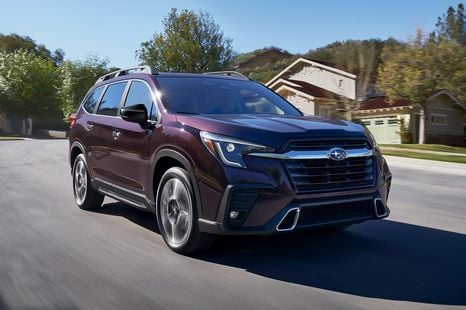

James Wong
1 Hour Ago
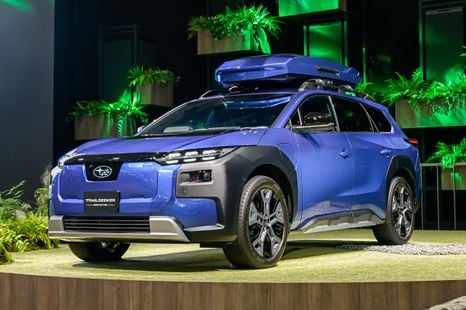

James Wong
1 Hour Ago
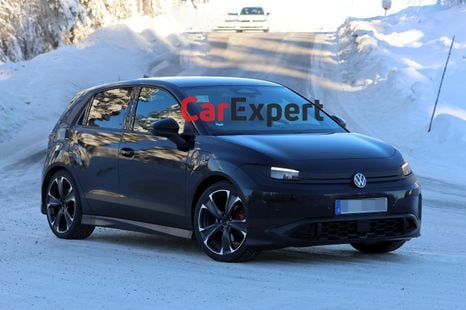

Damion Smy
8 Hours Ago
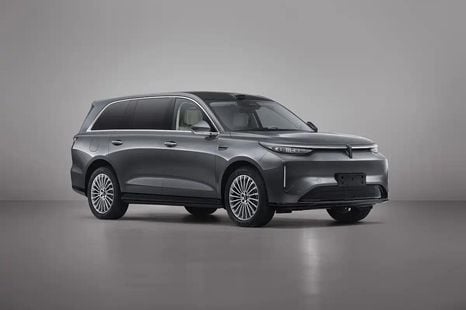

William Stopford
9 Hours Ago
Add CarExpert as a Preferred Source on Google so your search results prioritise writing by actual experts, not AI.
* Average savings based on recent CarExpert customer transactions. Actual savings will vary depending on vehicle make and model, location, stock availability, and other factors.
† Displayed prices exclude on-road costs such as delivery charges, registration fees, number plates, insurance and applicable road taxes. These prices are subject to change without notice and may not reflect current market pricing or dealer offers.
 Automotive Vehicle Spec Data & 4K images Powered by JATO Dynamics Ltd
Automotive Vehicle Spec Data & 4K images Powered by JATO Dynamics Ltd